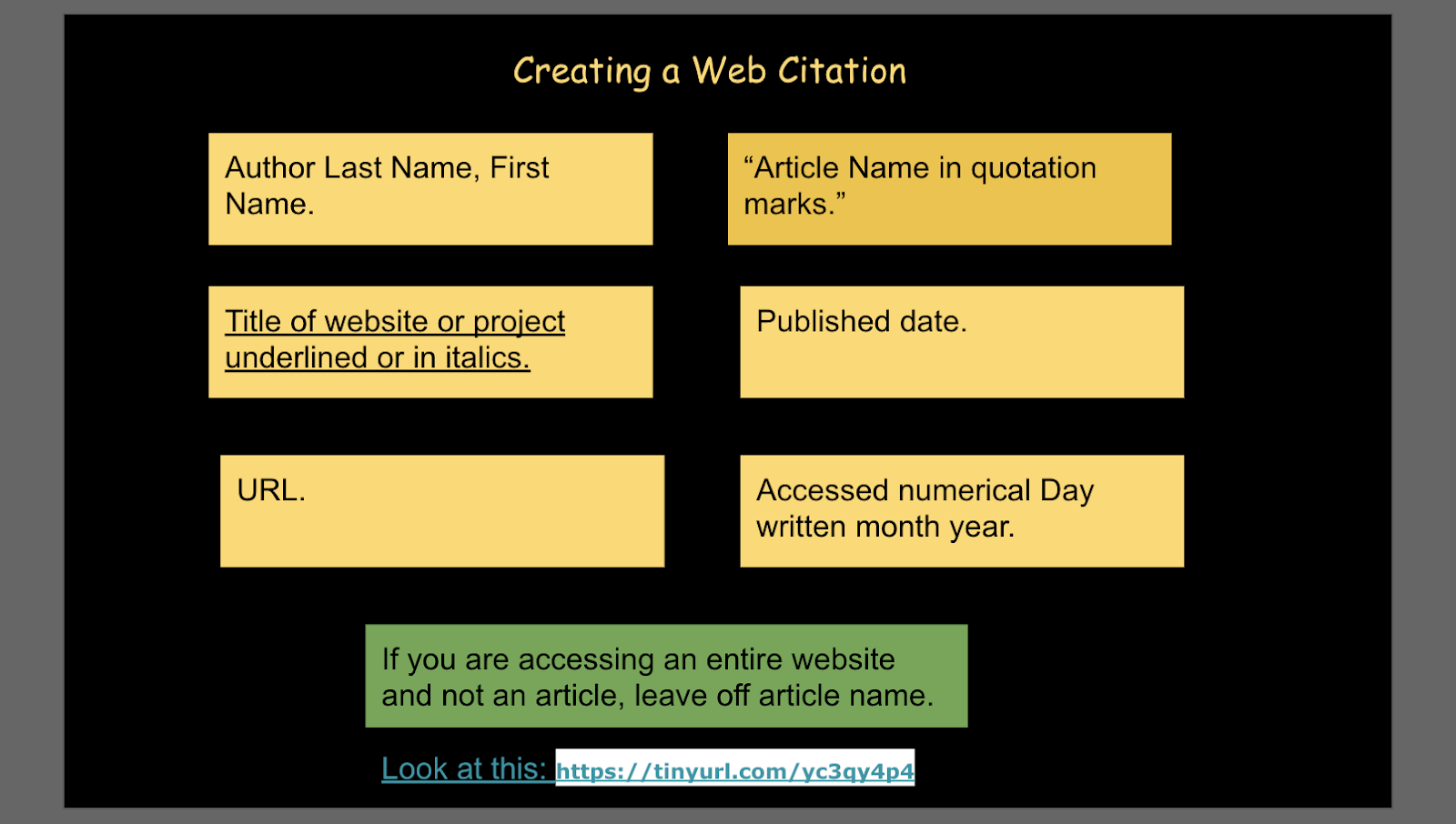Groening, Matt. "Bart-Simpson-Plagiarize". Cartoon. Awesomely Luvvie. Web. 17 Sep 2013. <http://www.awesomelyluvvie.com/2012/01/protect-your-blog-content-know-your-rights.html/bart-simpson-plagiarize>.
Give credit where credit is due! All middle school students are expected to know how to cite sources for their work and to show Ms. Esmé evidence of citations being used in work for other classes each marking period.
Online citation generators and guides, for your convenience:
BIBME: HOW TO CITE ANYTHING IN APA FORMAT
BIBME: HOW TO CITE ANYTHING IN MLA FORMAT
CITATION MACHINE
CITEFAST
KNIGHTCITE
EASYBIB
PURDUE ONLINE WRITING LAB (OWL) (includes in-text citations)
EDUCATION PLACE (not a generator, "checklist" format)
They all do more or less the same thing. Find the interface that is most comfortable for you! Additionally, print versions of citation style guides, guidelines for in-text citations and assistance are available by request in the library.
Need to shorten a long URL? Visit tinyurl.com.
Helpful hints:
• Ask your teacher which format s/he wants (APA, MLA). If your teacher does not have a preference, choose either one, just keep the format consistent throughout your bibliography.
• As you research, try your best to keep track of which resources you are using so you don't become overwhelmed and confused by your project's end. You may want to create a file either in Word or in your Bookmarks folder with the project name on it and save your sources there. Others find a system of Post-It Notes or index cards helpful. Keeping track of your sources as you work makes creating bibliographies much easier and more accurate. Otherwise, trying to pull it all together at the very end is very difficult and time-consuming, and sometimes back-tracking is not even possible.
• Even if you paraphrase (put information into your own words), you still should cite where you got the information or ideas.
• In informal, online social media (like Pinterest, Facebook, YouTube, blogs, etc.) it is still good "netiquette" to mention, credit or hyperlink to the sources of your information.
• In academic settings (like school), Wikipedia is not considered a reliable source because there are too many authors of varying authority. Wikipedia should never be your only source of information when researching for school. Additionally, the first Google result is not always the best. Take the time to hunt and compare sources.
• Be forewarned: plagiarism is an offense in the Uniform Discipline Code. There are disciplinary and academic consequences for students who fail to cite their sources or fail to demonstrate cyber-citizenship in general.
• Never be shy to ask Ms. Esmé for help...whether to create citations, navigate databases or research! If I am busy with a class or we are rushed, we can always make an appointment.
graphic from the UCSD's Social Sciences and Humanities Library.





Thank you!
ReplyDeleteThis comment has been removed by a blog administrator.
ReplyDeleteCool
ReplyDeletehelpful
ReplyDelete